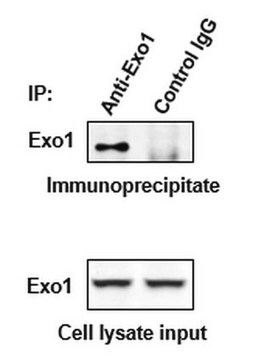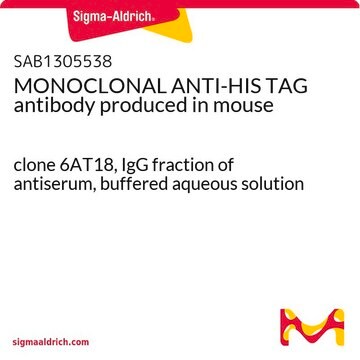ABE1408
Anti-DNA polymerase beta Antibody
from rabbit, purified by affinity chromatography
Synonym(s):
DNA polymerase beta, DNA polymerase beta
About This Item
WB
western blot: suitable
Recommended Products
biological source
rabbit
Quality Level
antibody form
affinity isolated antibody
antibody product type
primary antibodies
clone
polyclonal
purified by
affinity chromatography
species reactivity
rat, human, mouse
species reactivity (predicted by homology)
canine (based on 100% sequence homology), Xenopus (based on 100% sequence homology), bovine (based on 100% sequence homology), feline (based on 100% sequence homology), rhesus macaque (based on 100% sequence homology)
technique(s)
immunohistochemistry: suitable
western blot: suitable
NCBI accession no.
UniProt accession no.
shipped in
wet ice
target post-translational modification
unmodified
Gene Information
bovine ... Polb(614688)
cat ... Polb(101099797)
dog ... Polb(494001)
frog ... Polb(448741)
human ... POLB(5423)
mouse ... Polb(18970)
rat ... Polb(29240)
rhesus monkey ... Polb(704801)
General description
Immunogen
Application
Quality
Western Blotting Analysis: 1.0 µg/mL of this antibody detected DNA polymerase beta in 10 µg of human and mouse testis tissue, Jurkat, and HeLa lysates.
Target description
Other Notes
Not finding the right product?
Try our Product Selector Tool.
recommended
Storage Class Code
12 - Non Combustible Liquids
WGK
WGK 1
Flash Point(F)
Not applicable
Flash Point(C)
Not applicable
Certificates of Analysis (COA)
Search for Certificates of Analysis (COA) by entering the products Lot/Batch Number. Lot and Batch Numbers can be found on a product’s label following the words ‘Lot’ or ‘Batch’.
Already Own This Product?
Find documentation for the products that you have recently purchased in the Document Library.
Our team of scientists has experience in all areas of research including Life Science, Material Science, Chemical Synthesis, Chromatography, Analytical and many others.
Contact Technical Service







